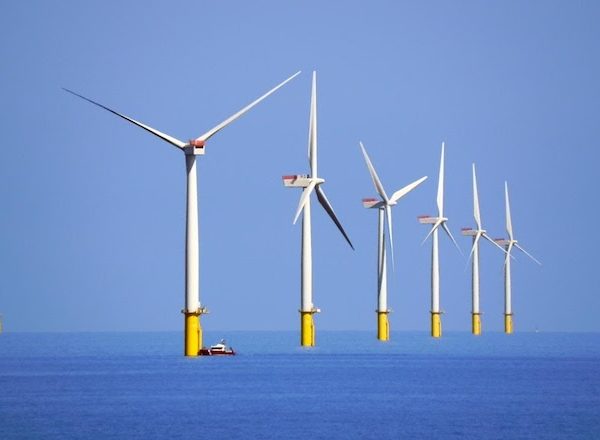The skills and capacities of the labour market is highlighted as one of the core pillars in achieving a swift renewable energy transition.
With governments, corporations, and communities pushing towards a sustainable future, the renewable energy sector is not only expanding but also transforming the job market, creating a critical need for skilled professionals. In last month’s article on renewable energy skills, we spent some time establishing how a labour skills shortage could have lasting consequences for industry progress. The current article will explore some strategies employed by industry and academic experts to ensure that the bottleneck caused by increasing labour demands are met efficiently and to a high standard.
What skills does the renewable energy sector need?
According to the Renewable Energy and Jobs: Annual Review 2023, the renewable energy sector employed almost 14 million people globally in the previous year [1], a number expected only to rise as new projects come online. The expansion is not limited to traditional energy roles; it spans across research and development, manufacturing, planning, installation, maintenance, and management. This diverse range of opportunities underscores the need for a workforce equipped with the right skills.
Electrical and mechanical engineers, for instance, are essential for designing and maintaining wind turbines and solar panels. However, the industry is also in dire need of experts in areas like energy storage, smart grid technology, and AI, which are crucial for optimizing renewable energy systems. Moreover, as renewable energy systems become more integrated with other infrastructure, skills in data analysis and cybersecurity are becoming increasingly important. Beyond technical skills, there is also a growing emphasis on project management and policy expertise. Navigating the regulatory environment and securing financing for large-scale renewable projects are complex tasks that require a deep understanding of both the technical aspects of energy and the broader economic and political context.
How can we build renewable energy skills?
Governments and private companies are collaborating to create pathways for workers transitioning from traditional energy sectors to renewables, ensuring that the shift to a greener economy is inclusive. In 2023, the European Commission set out the Net-Zero Industry Act. The proposed legislation aims to strengthen the resilience and competitiveness of net-zero technologies manufacturing in Europe [2]. A core aspect of the act is the enhancement of skills and fostering innovation, which has led to the formation of Net-Zero Academies [3].
In support of the Act, by bringing together leaders of the entire spectrum of the renewable energy value chain, The Renewable Energy Skills Partnership (Pact for Skills) recently published a position paper containing best practices for addressing the skills challenge. The recommendations cover four priority areas that need to be addressed:
- Prioritise renewable energy skills and workforce building in policymaking
- Boost the visibility and attractiveness of technical, scientific, and engineering renewable energy opportunities
- Foster recognition and mobility in educational pathways and the job market
- Ensure a strong and swift response to skills needs
These recommendations are already in motion across the globe. Last month saw Net-Zero Academies launching the European Solar Academy [3], the first in a series of establishments that will focus specifically on developing learning content and programmes, together with the industry, to ensure sufficient skills and workforce in the value chain. Universities are expanding their curricula to include courses on renewable energy technologies, sustainable development, and environmental policy. Apprenticeships and hands-on training are also playing a crucial role in equipping the workforce with the practical experience. In addition to formal education, many professionals are seeking new certifications and training programs to reskill or upskill, facilitated by specially developed business academies.
Conclusions
The transition to renewable energy is not just a technological shift; it is a transformation of the global workforce. As the world continues to prioritize sustainability, the demand for renewable energy skills is expected to remain robust, offering job security and the chance to make a tangible impact on the fight against climate change. Developing a workforce that can keep up with the energy transition will require collaboration between governments, academies, and organisations with an overall focus on the success of individuals. For those looking to future-proof their careers, now may be the time to invest and be part of a movement that is shaping the future of our planet.
About Pager Power
Pager Power undertakes technical assessments for developers of renewable energy projects and tall buildings worldwide. For more information about what we do, please get in touch.
References
[1] IRENA, 2023. Renewable Energy and Jobs: Annual Review 2023, Last accessed: 30/08/2024, Available at: https://www.irena.org/Digital-Report/Renewable-energy-and-jobs-Annual-review-2023
[2] European Commission, 2023. Net-Zero Industry Act: Making the EU the home of clean technologies manufacturing and green jobs, Last accessed: 30/08/2024, Available at: https://ec.europa.eu/commission/presscorner/detail/en/ip_23_1665
[3] European Commission, 2024. First Net-Zero Academy to train 100,000 workers in the EU solar photovoltaic value chain, Last accessed: 30/08/2024, Available at: https://ec.europa.eu/commission/presscorner/detail/en/ip_24_3407
[4] Pact for Skills, 2024. Position paper of skills: Policy recommendations and best practices for addressing the skills challenge, Last accessed: 30/08/2024, Available at: https://www.europeanbiogas.eu/wp-content/uploads/2024/06/Renewable_Energy_Skills_Partnership_Paper_June_2024_bf6ee72ee4.pdf
Image accreditation: Zen Chung (2020) on Pexels.com. Last accessed on 30th August 2024. Available at: https://www.pexels.com/photo/multiethnic-female-friends-studying-with-books-5538353/




